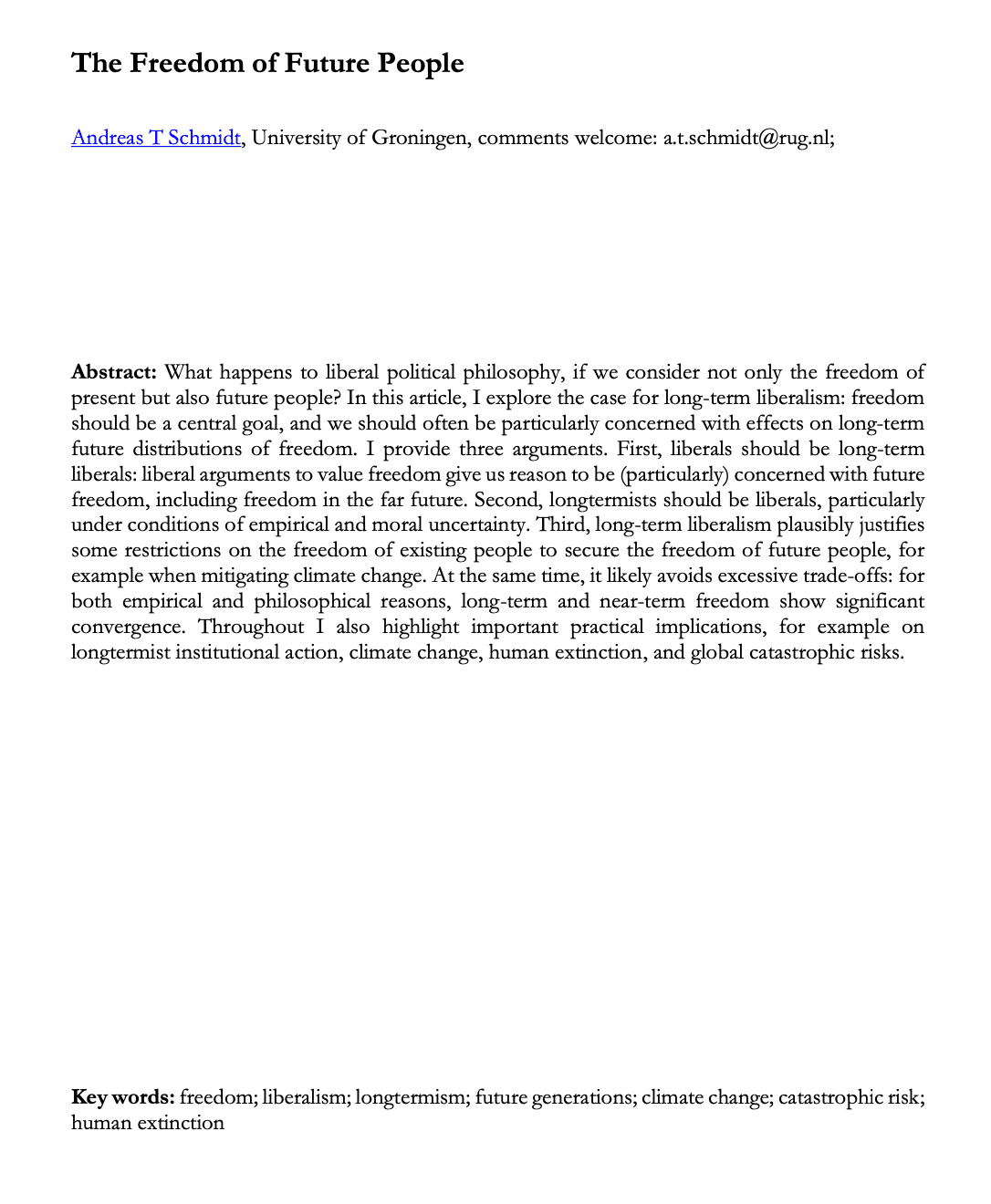The freedom of future people
Andreas T Schmidt (University of Groningen)
GPI Working Paper No. 10-2023
What happens to liberal political philosophy, if we consider not only the freedom of present but also future people? In this article, I explore the case for long-term liberalism: freedom should be a central goal, and we should often be particularly concerned with effects on long-term future distributions of freedom. I provide three arguments. First, liberals should be long-term liberals: liberal arguments to value freedom give us reason to be (particularly) concerned with future freedom, including freedom in the far future. Second, longtermists should be liberals, particularly under conditions of empirical and moral uncertainty. Third, long-term liberalism plausibly justifies some restrictions on the freedom of existing people to secure the freedom of future people, for example when mitigating climate change. At the same time, it likely avoids excessive trade-offs: for both empirical and philosophical reasons, long-term and near-term freedom show significant convergence. Throughout I also highlight important practical implications, for example on longtermist institutional action, climate change, human extinction, and global catastrophic risks.
Other working papers
The unexpected value of the future – Hayden Wilkinson (Global Priorities Institute, University of Oxford)
Various philosophers accept moral views that are impartial, additive, and risk-neutral with respect to betterness. But, if that risk neutrality is spelt out according to expected value theory alone, such views face a dire reductio ad absurdum. If the expected sum of value in humanity’s future is undefined—if, e.g., the probability distribution over possible values of the future resembles the Pasadena game, or a Cauchy distribution—then those views say that no real-world option is ever better than any other. And, as I argue…
In defence of fanaticism – Hayden Wilkinson (Australian National University)
Consider a decision between: 1) a certainty of a moderately good outcome, such as one additional life saved; 2) a lottery which probably gives a worse outcome, but has a tiny probability of a far better outcome (perhaps trillions of blissful lives created). Which is morally better? Expected value theory (with a plausible axiology) judges (2) as better, no matter how tiny its probability of success. But this seems fanatical. So we may be tempted to abandon expected value theory…
Longtermism in an Infinite World – Christian J. Tarsney (Population Wellbeing Initiative, University of Texas at Austin) and Hayden Wilkinson (Global Priorities Institute, University of Oxford)
The case for longtermism depends on the vast potential scale of the future. But that same vastness also threatens to undermine the case for longtermism: If the future contains infinite value, then many theories of value that support longtermism (e.g., risk-neutral total utilitarianism) seem to imply that no available action is better than any other. And some strategies for avoiding this conclusion (e.g., exponential time discounting) yield views that…

